

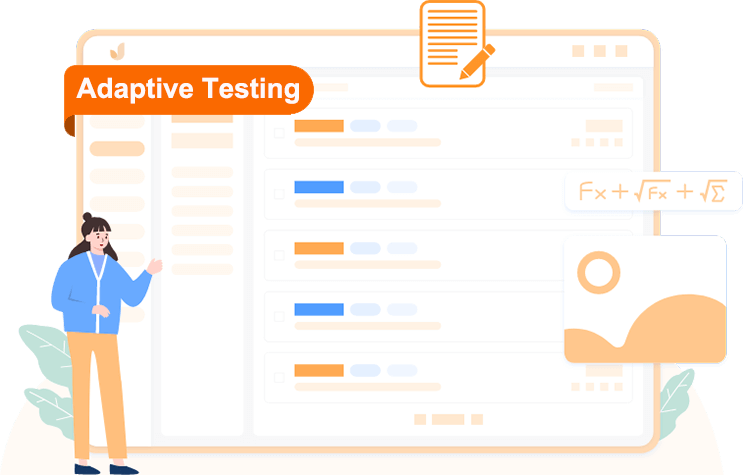
Based on Item Response Theory (IRT), OnlineExamMaker's adaptive testing system adjusts the difficulty and content of questions in real-time based on the test-taker's previous answers, ensuring that each individual receives a uniquely tailored assessment experience that accurately reflects their ability.

By dynamically adapting to performance, OnlineExamMaker adaptive testing creator avoids overly easy or overly hard questions. This makes the test shorter and more precise, providing a clearer measurement of the test-taker's true knowledge and competency level. This function can help teachers use fewer items to achieve a reliable estimate of ability compared to traditional tests.

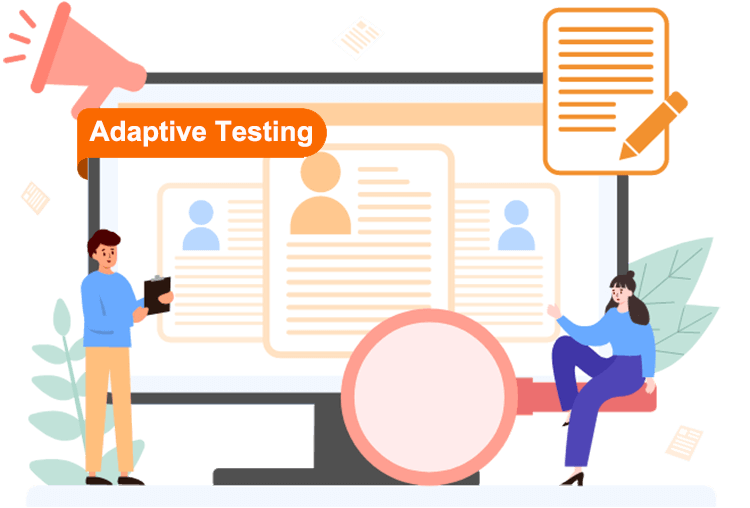
Unlike traditional tests where every student answers the same questions, adaptive testing reduces the number of unnecessary items. It delivers meaningful results faster while maintaining or even improving accuracy, saving both time and effort.
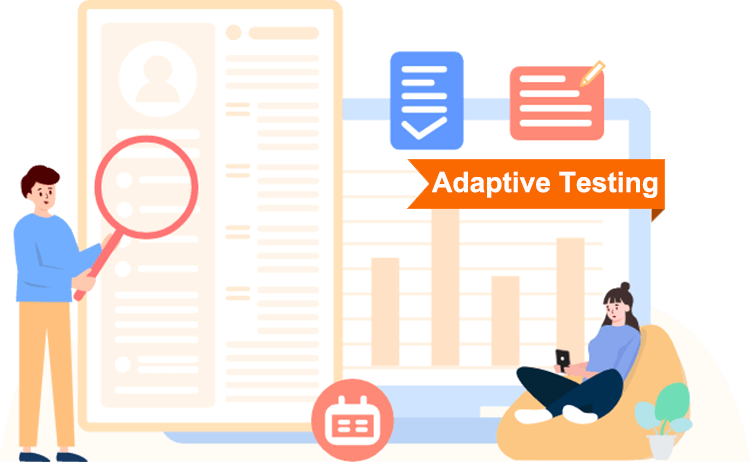
Since questions are adjusted to match the test-taker's ability, participants are less likely to face overwhelming or discouraging items. This creates a more comfortable testing environment, helping reduce stress and increasing engagement.

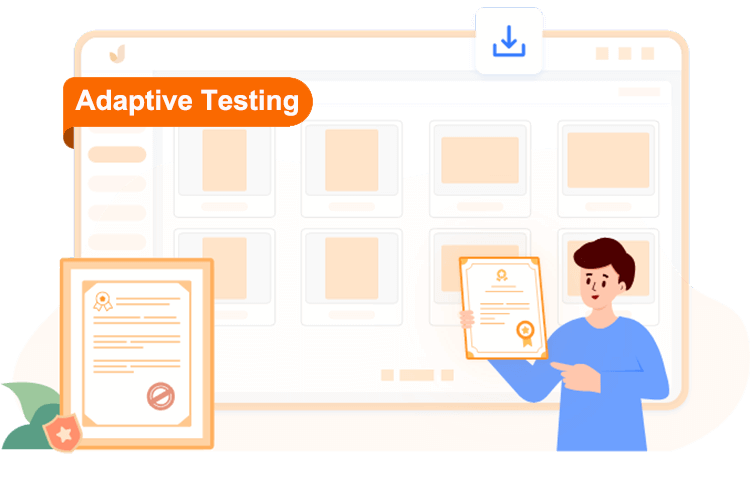
Our adaptive testing system minimizes bias by evaluating test-takers based on performance rather than standardized sets of questions. This ensures fairer outcomes across diverse backgrounds, learning styles, and preparation levels, making results more equitable.
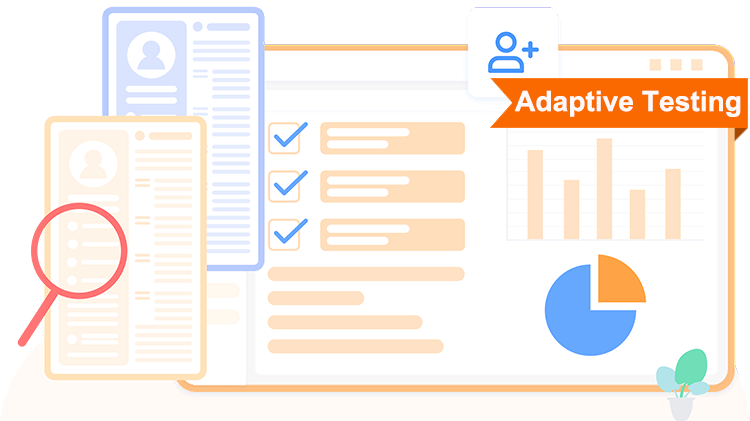
OnlineExamMaker adaptive testing software provides instant feedback, detailed score reports, and insights into strengths and weaknesses. Educators, employers, or administrators can use this real-time data to make informed decisions and tailor future instruction or training.

You can create a large pool of questions with varied difficulty levels, and each question must be tagged for difficulty. In OnlineExamMaker Question Bank, we offer 3 difficulty tags, they are: easy, medium, and difficult (hard).
Go to "Exams" > "Adaptive Tests", then click "New exam" button to create a new adaptive test.
Select the question categories that you want to add to the adaptive test, you can check the checkbox to select the question types.
You can configure the general settings of the adaptive test, such as exam live time, exam taken times, etc.
Configure the passing standard, minimum and maximum answer question number of your adaptive test.
Publish the adaptive test, then share the exam link or QR code to exam takers via email or mobile phone message.
Make assessments that dynamically adjusts test difficulty to each examinee's ability level easily!


